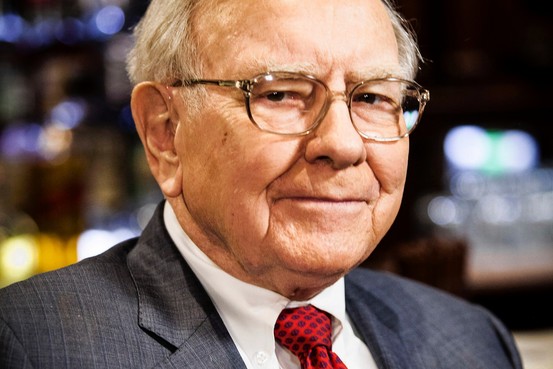
Iconic billionaire Warren Buffett is sitting in the driver’s seat of a Buick SUV, talking to the drive-through cashier at a McDonald’s.
“I’ll have a Sausage McMuffin with an egg and cheese,” he tells the grinning young woman, who clearly recognizes him and spots a documentary camera operator in the passenger seat. He probably orders breakfast at this drive-through several times a week.
“$3.17 is a bacon, egg and cheese biscuit. The market’s down this morning, so I think I’ll pass up the $3.17 and go for the $2.95.”
It sounds like the kind of advice you might expect from a financial advisor on spending. Cut down on the little expenses and you’ll have more to invest, thus more in retirement.
Except it’s all faintly ridiculous. Sure, his cheaper choice is a savings, but the man “earns” an estimated $37 million a day on his investments.
That’s the companies. His salary at Berkshire Hathaway, the firm he founded decades ago, is about $100,000. Plenty of money in Omaha, Nebraska for all the bacon Buffett might want.
The thing is, the whole “the market is down” aside is a joke, a pithy commentary on how most investors approach the stock market. It’s also the reason why so many ordinary investors fail when it comes to long-term gains.
J.P. Morgan, the investment bank, releases a big book of charts and graphs each year that shows dozens of fascinating data points on investing. One of them shows that the stock market returned 8.2% per year from 1996 through 2015 while the “average” retail investor experienced a gain of just 2.1%.
How does that happen? It happens because the small investor takes short-term moves in the stock market to be meaningful.
Buffett laughs at this because he knows from long experience that the ups and downs of the stock market on any given day are literally meaningless. Stock market moves don’t affect his investment process any more than it affects a decision to splurge on bacon at a drive-through.
Extra bacon
If you go to the Internet and type “Warren Buffett buy sell” you will be greeted with a deluge of headlines from websites that want you to think that Buffett is an active trader. “6 Stocks Warren Buffett Loves for 2016” is one result. “Warren Buffett Is Selling These 5 Stocks” is another.
Certainly Buffett buys stocks from time to time, though usually more of what he already owns. It’s hard for a company as large as Berkshire to make a truly novel trade. It tends to move prices as it buys. And he sells, too, but not often.
“The money is made in investments by investing,” Buffett told CNBC, “and by owning good companies for long periods of time. If they buy good companies, buy them over time, they’re going to do fine 10, 20, 30 years from now.”
If you take away anything from watching documentaries on the life of Warren Buffett, it’s this: How the market does today, tomorrow and next month is irrelevant. What matters is having the discipline to stay invested and to manage risk appropriately.
A little extra bacon on your breakfast sandwich isn’t going to make a difference, so long as you manage what matters.





